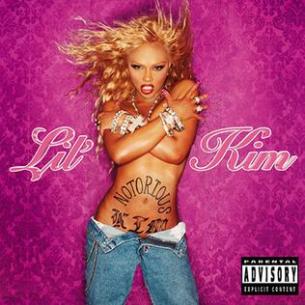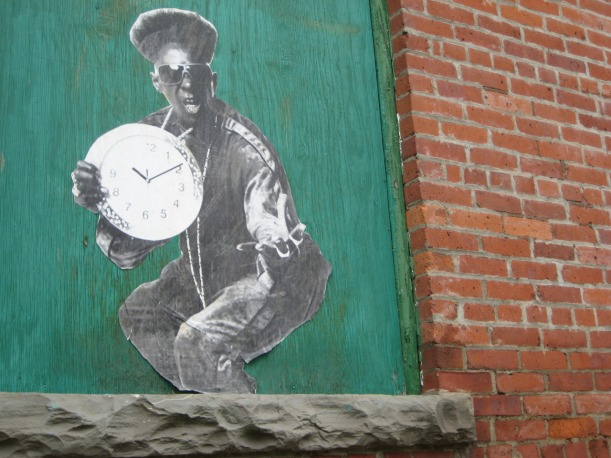Ol Dirty Bastard was probably the first rapper I should have done, but instead I did Lil’ Kim. I was debating if I should do someone recent (ASAP ROCKY will be next) but Ol’ Dirty is my first foray into love for hip-hop, his style something I didn’t understand but craved. I first saw him on BET (Black Entertainment Channel) at aged twelve, in 2000, with this video:
Like the reaction I talk about in the post about Lil’ Kim, I distinctly remember that I did not know how to interpret it but instantly loved it. At age twelve for a young white girl in the white suburbs in a school district noted for elitism, I had little to no experience with Blaxploitation movies or the frank adult themes that the video explored. It would be several more years until I could understand the narrative he was presenting. But I loved it.
I knew Ol’ Dirty was making a commentary on what it was to be Black. I knew that he was making fun of something (Blaxploitation films, in this case). I knew that it had to do with sexuality (ODB fathered thirteen children, for one, for two Blaxploitation’s association with titillating themes such as prostitution and nudity) and acts of criminality (in this video, drugs, violence, and generally wild lifestyles which was widely mirrored by “Dirt McGirt”‘s long-term associations with criminality). All of themes, raw sexuality coupled with acts association with outcasted peoples such as violence, drugs, wildness were common in ODB’s work. He was a thoroughly self aware artist while refusing to give up the lifestyle that made him famous.
If you listened to “Baby Got Your Money” you can hear him rap about knowing the feds were watching him.
Indeed, in my own hometown, it is the legend that he used to come up to Bing and sell crack in the ‘hood even after the Wu Tang has made in mainstream music.
Ol Dirty was from Brooklyn, New York, and was a part of the Wu Tang Clan who mostly originated from Staten Island. He died in 2004 from a drug overdose. Primarily active in the 1990s but still recording up until he died, Dirty’s is considered an original gangster (OG) of rap music. His music is realistic within the experience of growing up Black and in New York City with dire economic experience. The auditory experience of Ol Dirty is one that recreates the places that made the composite of his life. In “Harlem World” he brings you into what is presumably Harlem during the 1980’s, a time of AIDS and violence,
Ol Dirty often has beats that are haunting and eerie. This is a creation of sound that carries into modern rap, in Drill music for example. The recreation of the chaos of the urban atmosphere is palpable and fills your head. It should be noted that Ol Dirty Bastard is the first of his kind within the sphere of his rapping style (extremely eccentric, bizarre, and outside what was typically heard of the era), and has an extremely distinctive sound. He got his name from the kung-fu movie “Ol’ Dirty and the Bastard” but Method Man has also been quoted as saying his name is significant to the fact that “there is no father to his style”. Indeed, he is considered something of a mythical Wu Tang member.
Often misunderstood for the constant recurrences of bouts of mental illness that manifested in bizarre behavior, frequent crack cocaine and other drug use, and occasional stints in jail, Ol Dirty is also the most misunderstood member of the Wu. A recent New Yorker Magazine article that chronicled the most significant figures in New York hip-hop ever (of which Jay-Z was featured on…how oddly capitalistic of you, Hov), dissed him with smugness. He is amongst the most irresponsible a citizen as a citizen can get, yet he is a respectable figure for the way he lived his life and his refusal to give up authenticity within the context of an artist being a manifestation of his art.
It wasn’t like he didn’t know his life was a mess. He mocks himself in “Drug Free”
He starts the song with “Don’t get High” and them immediately “Cocained-the fuck up/paranoid as a motha…yo I’m paranoid as a fucka!” followed by “nigga I’m tired of gettin’ high like that/stop fuckin’ with me”. Like what he was doing in the video for “Baby Got Your Money”, he reflected reality back at itself and then mocked it for the absurdity of it’s existence. Perhaps this is why he is so misunderstood; he is so advanced as an artist that there are truly so few artists that pursue his way of creating. The song ends with the lyric “Kids! Don’t! Do! Drugs!/drug free! drug free! drug free!” which ends with the infamous goodness of Dirty’s singing. He is entertaining in his insanity while also reflecting the duality of his reality; utter sadness and ecstatic energy.
As I get older I am more able to relate to Dirty and understand what he is mocking about life. I knew what he was doing when I was twelve, but (thankfully), had not had enough of life’s absurdity to understand what he was portraying. He has my heart ever since.


